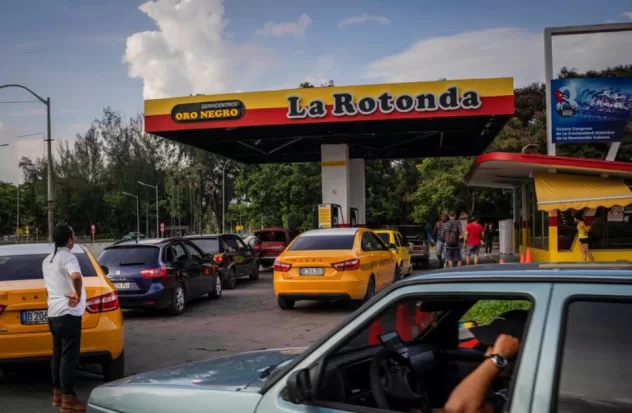HAVANA.- The regime of Cuba reported that the expected increase in gasoline prices, scheduled to take effect on March 1, will be even steeper than initially anticipated. In a move that surprises many, the increase will be more than 400%, instead of the previously announced 25%, according to statements from the Minister of Finance and Prices, Vladimir Regueiro.
As announced, the price of a liter of regular gasoline will go from 25 Cuban pesos (approximately 0.20 US cents) to 132 pesos (around 1.10 dollars), representing an increase of 428%, while special gasoline will increase from 30 (about 0.25 cents) to 156 pesos (approximately 1.30 dollars), which represents an increase of 420%.
This measure, which also includes a 25% increase in electricity rates for the sectors with the highest consumption, is part of a set of actions aimed at reducing the country’s fiscal deficit. The delay in its implementation, initially scheduled for last month, was due to a cybersecurity incident in government computer systems, according to official sources.
In addition, an increase in the price of liquefied gas is also expected, although this measure was also temporarily postponed. Foreign tourists have been ordered to pay for gasoline in foreign currency, while the increase in wholesale fuel prices for public and private transportation is still pending implementation.
The news generates concern among the Cuban population, who fear an increase in prices and possible economic repercussions. In January, following the initial announcement, long lines were recorded at service stations, which led the regime to postpone the measure. This delay coincided with the dismissal of the then Minister of Economy, Alejandro Gil, who had recognized the unsustainability of state fuel subsidies.
It is important to note that in Cuba there are two official exchange rates: one for banking transactions, set at 24 pesos per dollar, and another for the general public, 120 pesos per dollar. This difference in exchange rates directly affects the perception of the economic impact of price increases on the population.
Cuba continues to face a chronic crisis in fuel supplies, attributed in part to non-compliance with commitments by crude oil supplying countries. Although alternatives have been sought, such as agreements with Venezuela, Mexico and Russia, the country continues to grapple with significant economic challenges, including a 2% contraction in its economy over the past year and 30% inflation.
Source: With information from AFP



